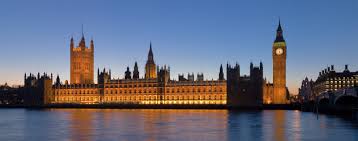What hope can a lesser nation have if the storied reasonableness of British civil society seems to count for so little?
Anyone following the agony of the United Kingdom’s efforts to deliver a workable plan of action on Brexit is bound to be horrified. The ill-considered referendum to leave the European Union has shaken British politics to its core. Two years have past with little progress and increased public polarization over what may be the catastrophic withdrawal of the U.K from its integration in to the European Union.
Have our British cousins lost their minds? The idea of Brexit is seriously flawed; the effort to put it into effect has been even worse. With all their advantages as a venerable democratic forum, why have members in the Mother of Parliaments not been able to find a pathway to a workable solution? In the face of even more trenchant problems, what hope can marginal democratic systems have if the storied reasonableness of British civil society seems to have counted for so little?
The news out of the Palace of Westminster is unusually disheartening. The country seems almost evenly split between those who want to stay within the European Union and those who want to leave. Tory Prime Minister Theresa May has demonstrated a staggering lack of initiative in finding a middle course that the Commons can accept. In the meantime, the Leader of the Scottish National Party keeps threatening to demand a new vote to allow Scotland to be an independent state within the E. U. Some Lifelong members of the Conservative Party have abandoned it. And many Labor Party members are privately doubtful that their leader would be any better as Prime Minister.
Ironically, whatever exit “plan” that finally gets enough votes will leave most of the details of the U.K’s departure to be decided later. An evidently bad deal will surely look worse as new stalemates arise over the need to reimpose dreaded border controls between the two Irelands, the loss of British rights to freely travel and work in Europe, and the temptation on both sides of the English Channel to come up with new restrictive tariffs.
Rarely has fecklessness had greater consequences.
 It turns out that Brexit has been a disaster from the moment years ago when a cocky David Cameron carelessly asked for a national referendum to “solve” a Conservative Party political problem. Rarely has such fecklessness had greater consequences. Even if Ms. May’s plan is approved in the House of Commons, it’s likely that Britain will still be dealing with the crippling effects of disentangling from the common market and the shared customs union for decades to come, with Britain’s youth likely to pay the cost.
It turns out that Brexit has been a disaster from the moment years ago when a cocky David Cameron carelessly asked for a national referendum to “solve” a Conservative Party political problem. Rarely has such fecklessness had greater consequences. Even if Ms. May’s plan is approved in the House of Commons, it’s likely that Britain will still be dealing with the crippling effects of disentangling from the common market and the shared customs union for decades to come, with Britain’s youth likely to pay the cost.
It simply doesn’t work to cling to an island fantasy when your history and modern global markets are built on the free flow of goods and people.
It’s not that we Americans have it figured out. Many of us have come to the view that our own constitutionally divided government is poorly suited for policy-making in the 21st Century. Compromise and conciliation are out of style and rarely photogenic. Even so, it’s a shock that to see a venerable parliamentary system fail so completely. Parliamentary systems usually seem better suited to the faster pace of 21st Century political life.
In Britain and the United States we are in an era where the expressive chances of debate seem to have greater rewards than actually legislating.
The endless of hours of debate over brexit offers some lessons and cautions to all democracies that always use deliberative bodies to formulate policy:
- Leaders who can’t build coalitions and find political allies seem to find greater comfort in what they say that what they actually do. Neither Prime Minister Theresa May and her opposite in the Labor Party have the political gifts of a Clement Attlee or even Tony Blair. Ms. May has been especially hard pressed to find compromises or graceful ways to abandon losing positions, the reason she has finally agreed to step down. And the leader of the opposition, Jeremy Corbyn, seems to have the same tendency for dithering.
- Dissolving complex cross-national alliances is a nightmare that should never be put to a popular vote. The illusion of making a simple binary choice is completely deceptive. Citizens should expect that their elected officials will see the effects and consequences of complex policy choices.
- Triumphant patriotism and exceptionalism are infections that are bound to leave a country vulnerable and divided. Ceding some power and money to the E.U. Headquarters in Brussels was all that nativists needed to agitate for withdrawal.
- We are in darker political era in Britain and the United States, where the expressive chances in public discussion seem to yield greater personal rewards than actually legislating through shared decision-making.
- Finally, sometimes even the best opportunities for deliberation are not enough to yield a conclusive result.
Those of us who have counted on orderly British discussion and decision-making as the deliberative model are left scratching our heads. Is the increasing fragmentation of most complex societies to be duplicated in ways that cripple their governing bodies as well? The available evidence from Britain and the United States is not encouraging.
![]()

